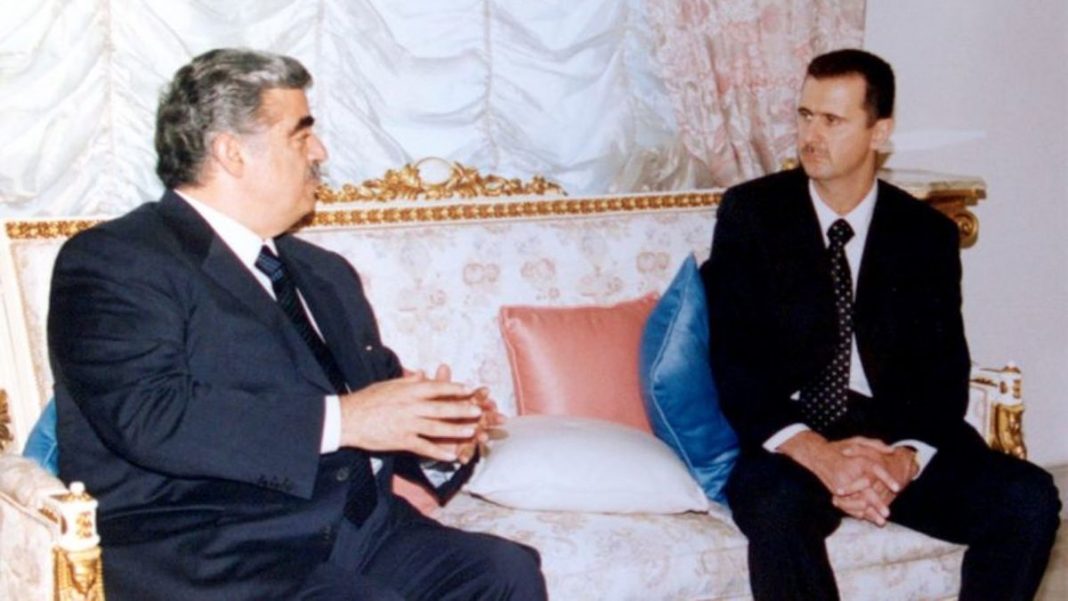Saudi Arabia called Tuesday for Hezbollah to be “punished” after a UN-backed tribunal found a member of the Shiite movement guilty over the 2005 murder of Lebanese ex-prime minister Rafic Hariri.
“The government of Saudi Arabia views the ruling as the emergence of truth and the beginning of a process of achieving justice by chasing, arresting and punishing those involved,” the kingdom’s foreign ministry said on Twitter.
Hezbollah warns Saudi-Arabia of destruction
Lebanon’s Hezbollah warned Saudi Arabia on Friday against betting on a war against Iran because it would destroy the kingdom and said Riyadh and the United Arab Emirates should halt the conflict in Yemen to protect themselves.
Read more: Shah Mehmood Qureshi call to OIC: Pakistanis hails no more compromise on self-respect
#Hariri: Punishment Must Be Served After Tribunal Verdict https://t.co/9SCG4t2n3A#STL pic.twitter.com/2Jym67PqRq
— MTV English News (@MTVEnglishNews) August 18, 2020
Sayyed Hassan Nasrallah, head of the Iran-backed Shi’ite Muslim group, also said new air defences could not easily defend Saudi Arabia from the type of drones used in a Sept. 14 attacks on Saudi oil installations.
Iran may be winning the regional struggle
The strategic rivalry is heating up because Iran is in many ways winning the regional struggle.
In Syria, Iranian (and Russian) support for President Bashar al-Assad has enabled his forces to largely rout rebel group groups backed by Saudi Arabia.
Saudi Arabia is trying desperately to contain rising Iranian influence while the militaristic adventurism of the kingdom’s young and impulsive Crown Prince Mohammed bin Salman – the country’s de facto ruler – is exacerbating regional tensions.
Tensions have spiked in the region since the attacks that officials in Washington and Riyadh have blamed on Iran, which has denied involvement. Responsibility was claimed by Yemen’s Houthi movement, an Iran-aligned group fighting a Saudi-led alliance in Yemen’s civil war.
From the @gulf_news editorial board: After 15 years, #Lebanon gets partial justice in #Hariri assassination
"The important judgement will hopefully set a precedent of accountability in Lebanon"https://t.co/HUR7CEMbM1 | #HaririVerdict
— Gulf News Opinion (@GNOpinion) August 18, 2020
Hezbollah is a heavily armed Shi’ite group set up by Iran’s Revolutionary Guards in 1982 and a major part of a Tehran-backed regional alliance.
This religious schism is reflected in the wider map of the Middle East, where other countries have Shia or Sunni majorities, some of whom look towards Iran or Saudi Arabia for support or guidance.
Saudi Arabia sees itself as ‘leader of the Muslim world’
Historically Saudi Arabia, a monarchy and home to the birthplace of Islam, saw itself as the leader of the Muslim world. However, this was challenged in 1979 by the Islamic revolution in Iran which created a new type of state in the region – a kind of revolutionary theocracy – that had an explicit goal of exporting this model beyond its own borders.
“Don’t bet on a war against Iran because they will destroy you,” Nasrallah said in a televised speech.
Noting that the attack had initially halved Saudi oil output, he added: “Your house is made of glass and your economy is made of glass. Like the glass cities in the UAE.”
“Saudi Arabia, by calling for Hezbollah and its terrorist elements to face justice and be punished, stresses the need to protect Lebanon, the region and the world from the terrorist practices of this group,” it added.
Hezbollah is a key ally of Syria and Shiite powerhouse Iran, Saudi Arabia’s main regional rival.
Salim Ayyash, 56, was convicted in absentia in the Netherlands, over the huge suicide bombing in Beirut that killed Sunni billionaire Hariri and 21 other people.
But the judges said there was not enough evidence to convict three other suspects — Assad Sabra, Hussein Oneissi and Hassan Habib Merhi.
Read more: OIC wants halt to Kashmir abuse by India
The court also ruled that there was no evidence to directly link Hezbollah’s leadership or Syria, long the dominant military power in Lebanon, to the attack.
The long-awaited decision prompted mixed reactions, with the late Hariri’s son Saad telling journalists outside the Special Tribunal for Lebanon (STL) he accepted the tribunal’s verdict and found it “satisfying”.
AFP with additional input by GVS News Desk














